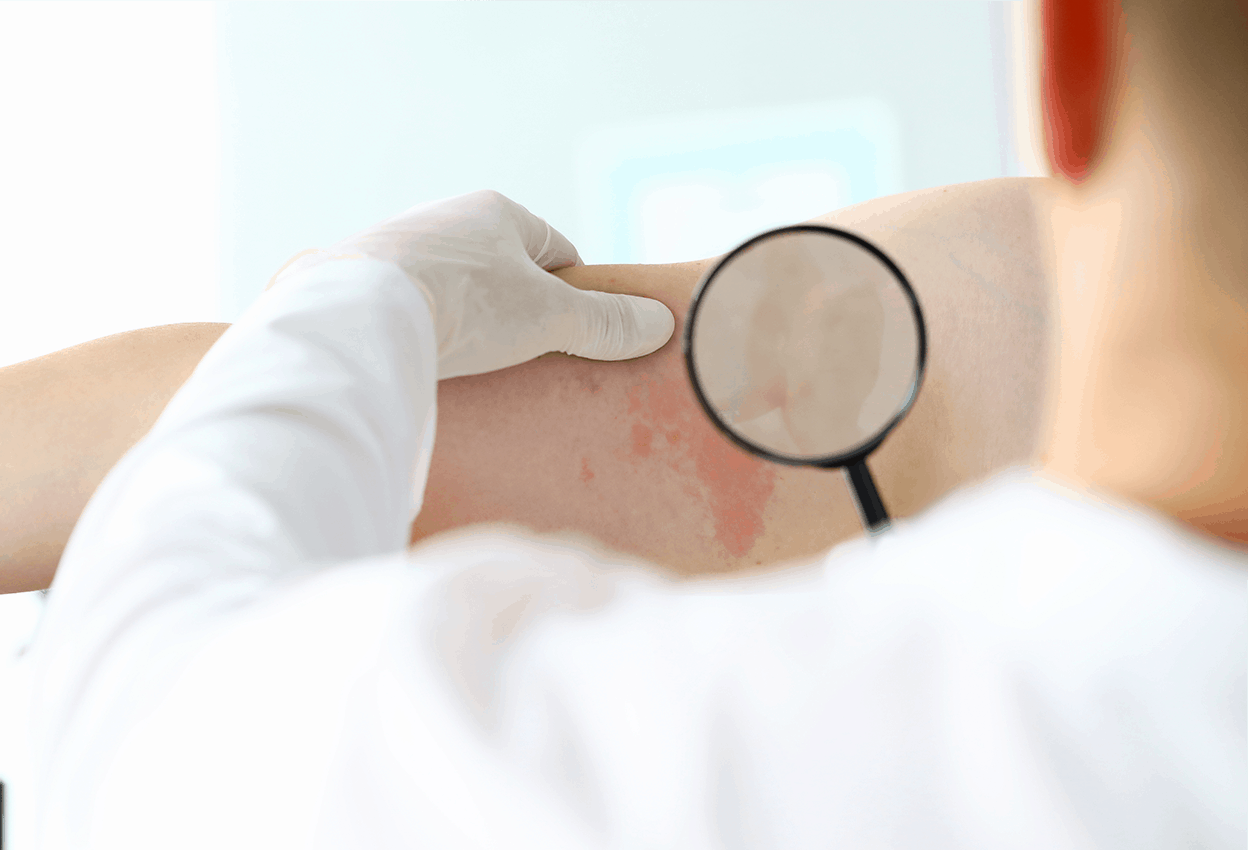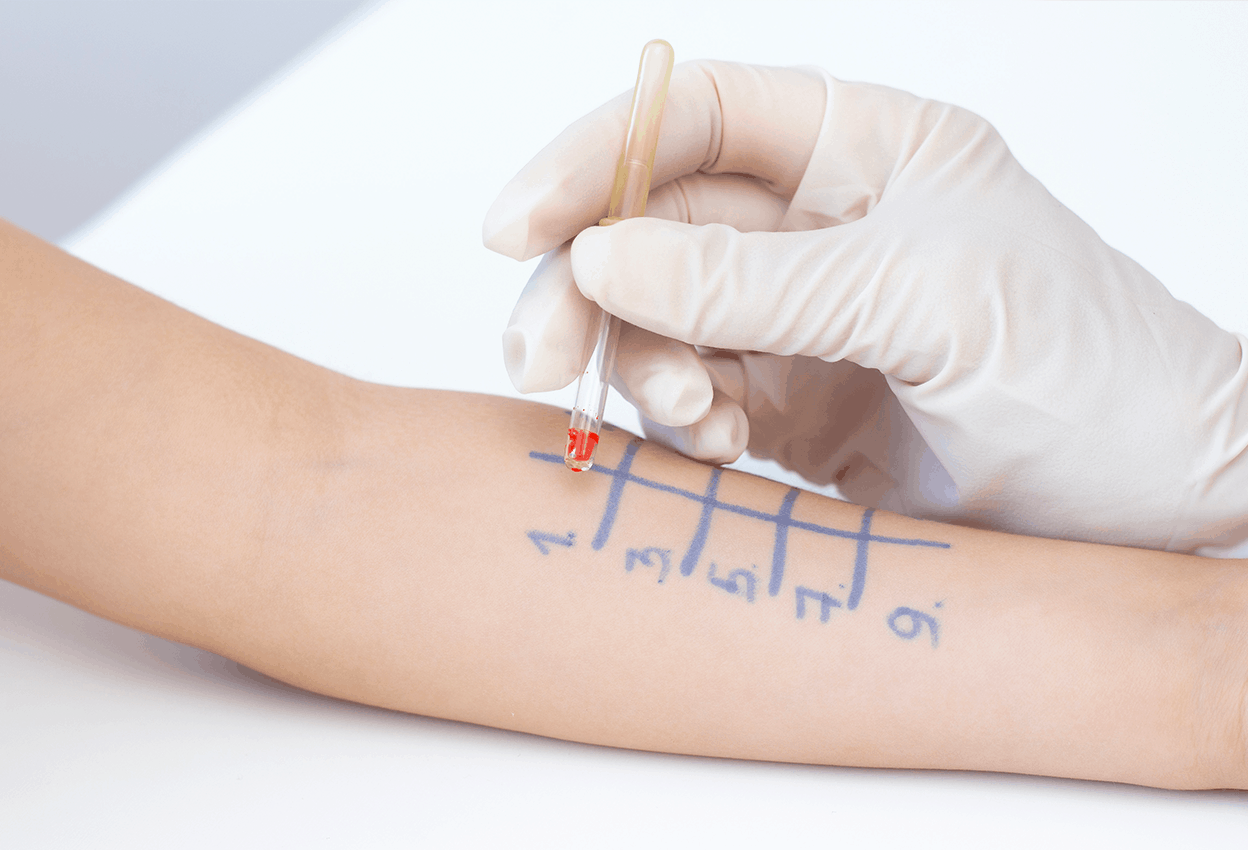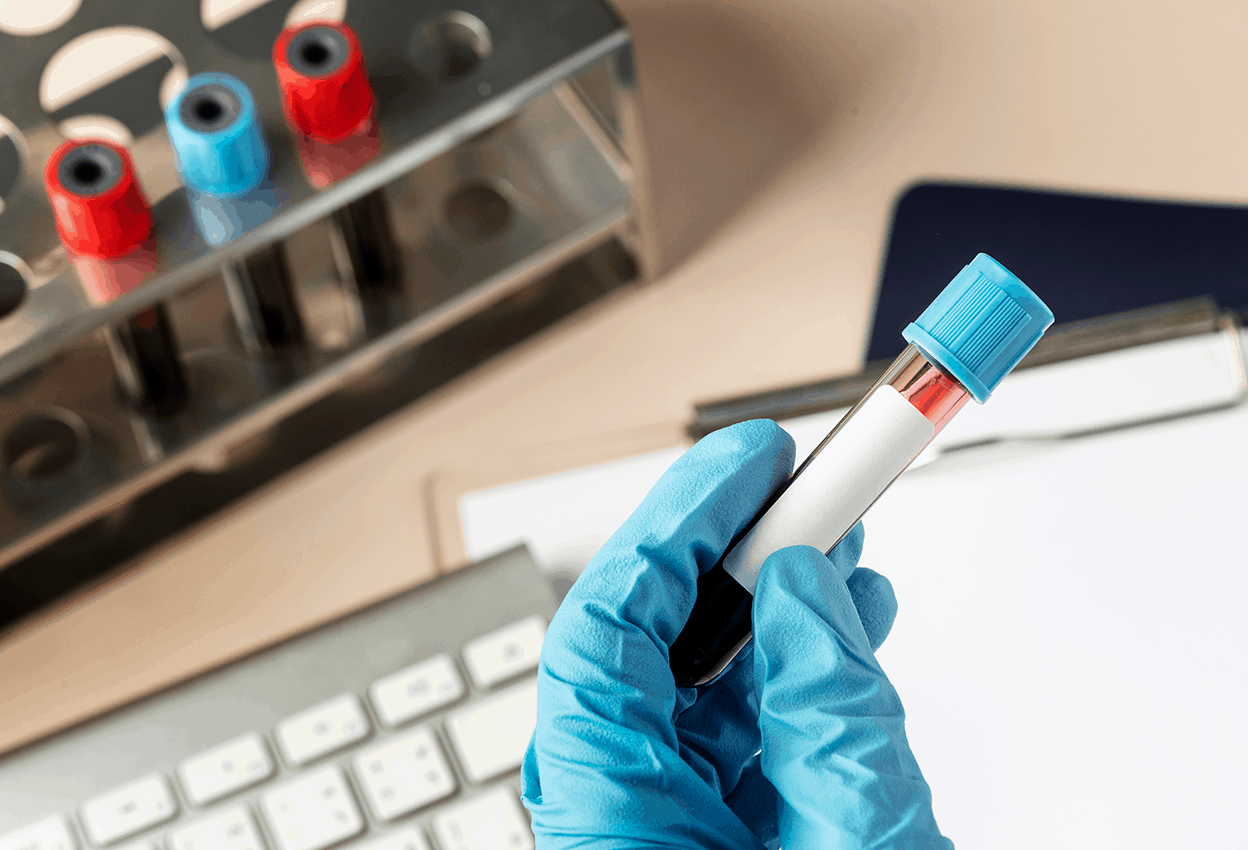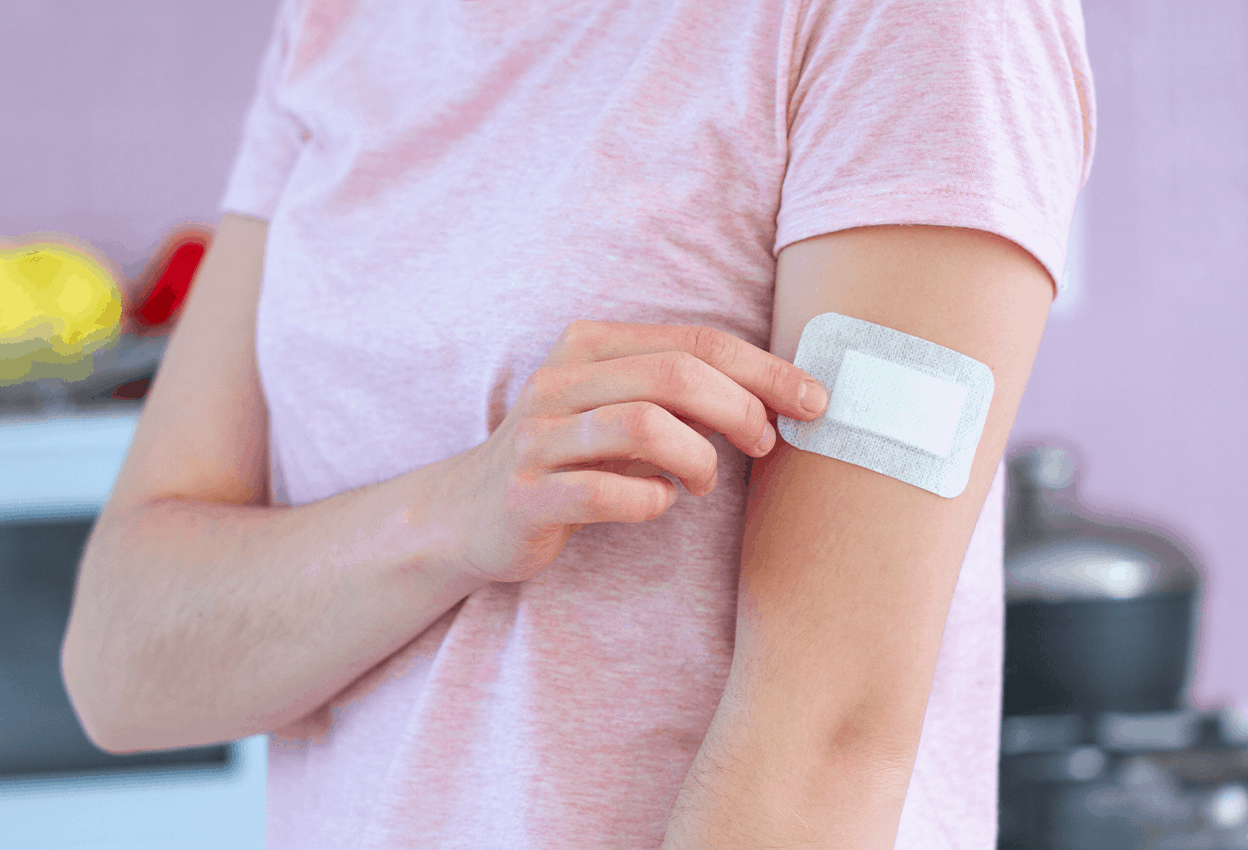Allergy Testing
Allergy testing is the all-important first step in determining an effective treatment plan for allergies. There are many types of allergy testing. Which ones are utilized depend on the type of allergy affecting the patient. They are: allergy skin testing, blood tests, lung function tests, food challenges, drug challenges, and patch testing.
As one of the leading experts in allergy diagnosis and care in Pasadena, CA, Dr. Farnam can help you breathe easier by testing which allergens are causing discomfort.
Allergy Testing
Allergy testing is the all-important first step in determining an effective treatment plan for allergies. There are many types of allergy testing. Which ones are utilized depend on the type of allergy affecting the patient. They are: allergy skin testing, blood tests, lung function tests, food challenges, drug challenges, and patch testing.
As one of the leading experts in allergy diagnosis and care in Pasadena, CA, Dr. Farnam can help you breathe easier by testing which allergens are causing discomfort.

Which Allergy Test Will I Need?
It all depends on the allergic reactions you are experiencing and what may be the suspected sources. Each test is designed to extract results for a specific allergy. Dr. Farnam will thoroughly discuss your symptoms and recommend the proper testing and treatments based on your individual comfort level.
How Are Allergy Skin Tests Performed?
There are generally two types of allergy skin tests. The first is prick skin testing where individual solutions containing the suspected allergens are placed on the skin using a prick device. The second is intradermal skin testing where individual solutions containing the suspected allergens are placed just underneath the surface of the skin using a small needle. These are not very painful procedures, and are minimally uncomfortable to the patient. In about fifteen minutes the skin will or will not react to the allergen introduced to the skin, resulting in mild inflammation that indicates a positive allergic reaction. Once the specific allergen affecting the patient is identified, Dr. Farnam can discuss treatment options.
On rare occasions, about one in every thousand cases, a patient experiences a systemic allergic reaction from an allergy skin test. If this type of reaction occurs, Dr. Farnam will treat the patient immediately.


How Are Allergy Blood Tests Performed?
Allergy blood tests are performed by drawing blood from the patient and sending the specimen to a lab for testing. Results from testing the blood for allergies take longer than a skin test, several days rather than minutes, since the results are read by a lab technician. Blood allergy tests can be necessary in situations where allergy skin testing is not advisable, such as when a patient cannot discontinue antihistamines or other medications that affect skin test results; patients with a condition called dermatographism where scratching the skin causes hives; or patients with skin rashes or lesions that prevent accurate reads of the skin test results.
What is a Lung Function Test and When is it Used?
Lung function tests are used to evaluate patients for asthma, which often occurs in patients affected by allergies. During a lung function test, patients are asked to blow into a device, called a spirometer, that measures how efficiently the lungs are performing. Dr. Farnam will then discuss the results and advise the patient of any necessary treatment plans.


How Are Food Challenges Performed and Evaluated?
During a food challenge, a patient is given a small amount of the food that they are suspected of being allergic to, and then monitored for any adverse reactions. Greater doses of the food are given incrementally to determine how allergic a patient is to that food, followed by periods of observation after each dose. Since food allergies can be very serious, and reactions potentially life-threatening in some cases, Dr. Farnam will closely monitor the procedure to ensure the safety of the patient.
How Are Drug Challenges Performed and Evaluated?
When a patient is suspected of being allergic to a specific drug, under Dr. Farnam’s supervision, that patient is given a minuscule dose of the drug and closely monitored for an allergic reaction. The dosage amount of that drug is gradually increased to test for the level of tolerance the patient has for that drug. Since allergic reactions to drugs can be severe, or even life-threatening, this procedure is only performed in the office.


What is Patch Testing and Why is it Necessary?
Patch testing is used to evaluate the level of allergic reaction when specific materials come into contact with the skin, which is called contact dermatitis. For instance, wearing certain jewelry may cause localized skin irritation or a specific formula of skin lotion or cleaning solution may aggravate the skin. Patches with trace amounts of the suspected agents are affixed to the skin in an unobtrusive part of the body and remain there for a few days. Dr. Farnam will then remove the patches for evaluation.

